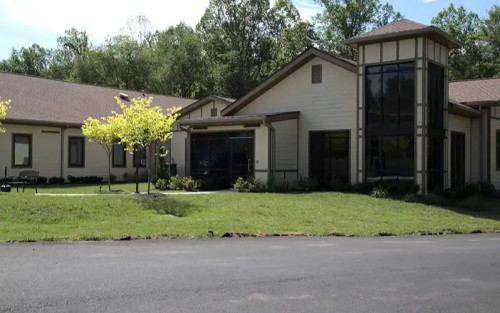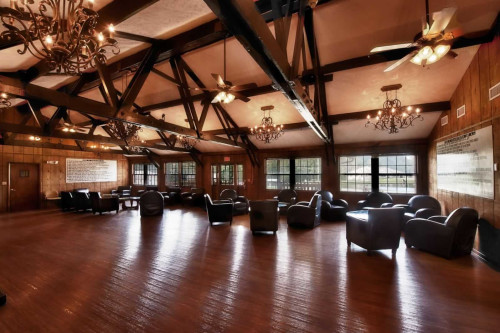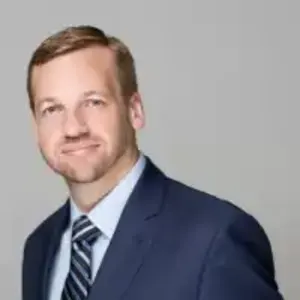








Mirror Lake Recovery Center
Verified Center
This provider's information has been quality-checked by Recovery.com's Research Team for accuracy and completeness, including center verification through appropriate third-party organizations.
Treatment Focus
This center treats substance use disorders and co-occurring mental health conditions. Your treatment plan addresses each condition at once with personalized, compassionate care for comprehensive healing.
Primary Level of Care
Offering intensive care with 24/7 monitoring, residential treatment is typically 30 days and can cover multiple levels of care. Length can range from 14 to 90 days typically.
Treatment Focus
This center treats substance use disorders and co-occurring mental health conditions. Your treatment plan addresses each condition at once with personalized, compassionate care for comprehensive healing.
Primary Level of Care
Offering intensive care with 24/7 monitoring, residential treatment is typically 30 days and can cover multiple levels of care. Length can range from 14 to 90 days typically.
Provider's Policy
Please call our admissions team for more information on insurance coverage. A knowledgeable member of our team can answer any financial questions you might have, and they can also reach out directly to your insurance carrier to verify and maximize your benefits. This service is free and puts you under no obligation to choose our programming.
Mirror Lake Recovery Center
Mirror Lake Recovery Center
About Mirror Lake Recovery Center
Mirror Lake Recovery Center treats addiction and co-occurring mental health conditions with personalized, evidence-based care. Their treatment revolves around the 12 Step recovery model, with daily 12-Step meetings and education on the 12 Steps. Their 3 phases of treatment include detox, residential treatment, and day treatment for men, women, pregnant women, and veterans. Mirror Lake Recovery Center rests on 75 private acres and has 146 beds, community spaces, and plenty of outdoor recreation.
Comprehensive And Evidence-Based Care
Mirror Lake Recovery Center begins treatment with medical, social, emotional, and family history assessments. Clients then begin detox, if needed, or move into residential care or day treatment. An addictionologist, nurses, and clinical technicians oversee detox and prescribe comfort medications as needed. In residential treatment, clients attend daily group therapies and 12-Step meetings. Mirror Lake Recovery Center provides at least one individual therapy session each week. Their masters-level therapists provide cognitive behavioral therapy (CBT), rational emotive behavior therapy (REBT), dialectical behavioral therapy (DBT), eye movement desensitization and reprocessing (EMDR), and motivational enhancement therapy (MET) in group and 1:1 settings.
Dual Diagnosis Treatment And Family Care
Mirror Lake Recovery Center treats co-occurring mental health conditions, including anxiety disorders, depressive disorders, bipolar disorder, and trauma. Their psychiatrist can prescribe medications for mental health conditions as needed. Mirror Lake Recovery Center also involves family in treatment, with a family program, family therapy sessions, and workshops loved ones can attend to learn more about addiction and personal healing.
Faith-Based And Non-Faith-Based Recovery
Mirror Lake Recovery Center offers a specialized nondenominational Christian recovery track called ReNew. Their Christian counselor leads it and incorporates worship, prayer, Bible studies, 12-Step work, and journaling. They also offer a SMART (Self-Management and Recovery Training) recovery track. Clients decide whether they take a faith-based or non-faith-based treatment path. Mirror Lake Recovery Center works with the VA community care network to treat veterans, specializing in trauma care and addiction recovery. They treat pregnant women up to their third trimester. Mirror Lake Recovery Center additionally provides transport to their center throughout Tennessee.

Highlights from the Center
Highlights
These highlights are provided by and paid for by the center.
Nature Lovers
On-site Medical Detox
12-Step Approach
Spiritual Emphasis
Center Overview
Treatment Focus
This center treats substance use disorders and co-occurring mental health conditions. Your treatment plan addresses each condition at once with personalized, compassionate care for comprehensive healing.
CARF Accredited
CARF stands for the Commission on Accreditation of Rehabilitation Facilities. It's an independent, non-profit organization that provides accreditation services for a variety of healthcare services. To be accredited means that the program meets their standards for quality, effectiveness, and person-centered care.

Mirror Lake Recovery Center
Insurance Accepted
Cash Pay Rates
Estimated Cash Pay Rate
Center pricing can vary based on program and length of stay. Contact the center for more information. Recovery.com strives for price transparency so you can make an informed decision.




Recovery.com Verified Listing
Recovery.com verified that the name, location, contact information and license to operate for this treatment provider are valid and up-to-date.

CARF Accredited

Licensed by Tennessee

NAATP Member
Recovery.com is an independent, third-party mental health resource. Verification does not imply endorsement and does not guarantee the quality of treatment services.
Meet Your Care Team

Alicia Svarda
Chief Executive Officer
MBA

Chad D. Elkin
Medical Director
M.D.

Sam Wright
Chief Nursing Officer
Bachelor’s in Nursing, Master’s in Business

Jake Duke
Chief Financial Officer
MBA
Your Care Options
Specializations
Alcohol
Using alcohol as a coping mechanism, or drinking excessively throughout the week, signals an alcohol use disorder.
Co-Occurring Disorders
A person with multiple mental health diagnoses, such as addiction and depression, has co-occurring disorders also called dual diagnosis.
Cocaine
Cocaine is a stimulant with euphoric effects. Agitation, muscle ticks, psychosis, and heart issues are common symptoms of cocaine abuse.
Drug Addiction
Drug addiction is the excessive and repetitive use of substances, despite harmful consequences to a person's life, health, and relationships.
Heroin
Heroin is a highly addictive and illegal opioid. It can cause insomnia, collapsed veins, heart issues, and additional mental health issues.
Christian
Through surrender and commitment to Christ, patients refocus the efforts and source of their recovery with clinical and spiritual care.
Opioids
Opioids produce pain-relief and euphoria, which can lead to addiction. This class of drugs includes prescribed medication and the illegal drug heroin.
Prescription Drugs
It's possible to abuse any drug, even prescribed ones. If you crave a medication, or regularly take it more than directed, you may have an addiction.
Who We Treat
Pregnant Women
Addiction and mental health treatment meets the clinical and psychological needs of pregnant women, ensuring they receive optimal care in all areas.
Treatment Services
Day Treatment
In a PHP, patients live at home but follow an intensive schedule of treatment. Most programs require you to be on-site for about 40 hours per week.
Detox
Detox fully and safely removes toxic substances from the body, allowing the next steps in treatment to begin with a clean slate.
Outpatient
During outpatient rehab, patients attend a structured treatment program while continuing to live at home.
Residential
In a residential rehab program, patients live onsite, with access to daily treatment and 24-hour care. An average stay is 30-90 days.
Approaches
Spiritual Emphasis
Spirituality connects patients to a higher power and helps strengthen their recovery, hope, and compliance with other treatment modalities.
Evidence-Based
A combination of scientifically rooted therapies and treatments make up evidence-based care, defined by their measured and proven results.
Experiential
Expressive tools and therapies help patients process past situations, learn more about themselves, and find healing through action.
Twelve Step
Incorporating spirituality, community, and responsibility, 12-Step philosophies prioritize the guidance of a Higher Power and a continuation of 12-Step practices.
Therapies
1-on-1 Counseling
Patient and therapist meet 1-on-1 to work through difficult emotions and behavioral challenges in a personal, private setting.
Meditation & Mindfulness
A practiced state of mind that brings patients to the present. It allows them to become fully aware of themselves, their feelings, and the present moment.
Art Therapy
Visual art invites patients to examine the emotions within their work, focusing on the process of creativity and its gentle therapeutic power.
Experiential Therapy
With this approach, patients heal by doing. Therapists help patients process difficult emotions to speak, using guided activities like art or dance.
Family Therapy
Family therapy addresses group dynamics within a family system, with a focus on improving communication and interrupting unhealthy relationship patterns.
Spiritual Care
Tending to spiritual health helps treatment become more effective, allowing patients to better cope with their emotions and rebuild their spiritual wellbeing.
Twelve Step Facilitation
12-Step groups offer a framework for addiction recovery. Members commit to a higher power, recognize their issues, and support each other in the healing process.
Conditions We Treat
Bipolar
This mental health condition is characterized by extreme mood swings between depression, mania, and remission.
Substances We Treat
Alcohol
Using alcohol as a coping mechanism, or drinking excessively throughout the week, signals an alcohol use disorder.
Benzodiazepines
Benzodiazepines are prescribed to treat anxiety and sleep issues. They are highly habit forming, and their abuse can cause mood changes and poor judgement.
Chronic Relapse
Consistent relapse occurs repeatedly, after partial recovery from addiction. This condition requires long-term treatment.
Co-Occurring Disorders
A person with multiple mental health diagnoses, such as addiction and depression, has co-occurring disorders also called dual diagnosis.
Cocaine
Cocaine is a stimulant with euphoric effects. Agitation, muscle ticks, psychosis, and heart issues are common symptoms of cocaine abuse.
Drug Addiction
Drug addiction is the excessive and repetitive use of substances, despite harmful consequences to a person's life, health, and relationships.
Ecstasy
Ecstasy is a stimulant that causes intense euphoria and heightened awareness. Abuse of this drug can trigger depression, insomnia, and memory problems.
Heroin
Heroin is a highly addictive and illegal opioid. It can cause insomnia, collapsed veins, heart issues, and additional mental health issues.
Psychedelics
Hallucinogenic drugs—like LSD—cause euphoria and increased sensory experiences. When abused, they can lead to depression and psychosis.
Languages
Aftercare
Care Designed for Your Needs
Personal Amenities
Amenities
Special Considerations
Religion-Based Track
Patients can join faith-based recovery tracks to approach recovery with others in their faith, healing in a like-minded group with similar goals.
Activities
Yoga
Yoga is both a physical and spiritual practice. It includes a flow of movement, breathing techniques, and meditation.

Learn More About the Center
Admissions Overview
Learn more about the admissions process at Mirror Lake Recovery Center, including their admission requirements, what to bring, and more.
SMART Recovery
See what’s offered in the SMART (non-12-Step) recovery program at Mirror Lake Recovery Center.
Mission And Philosophy
Mirror Lake Recovery Center describes their mission as a treatment center and how they approach treatment.
Mirror Lake Recovery FAQs
Learn more about Mirror Lake Recovery Center's programs, team, location, and more.





